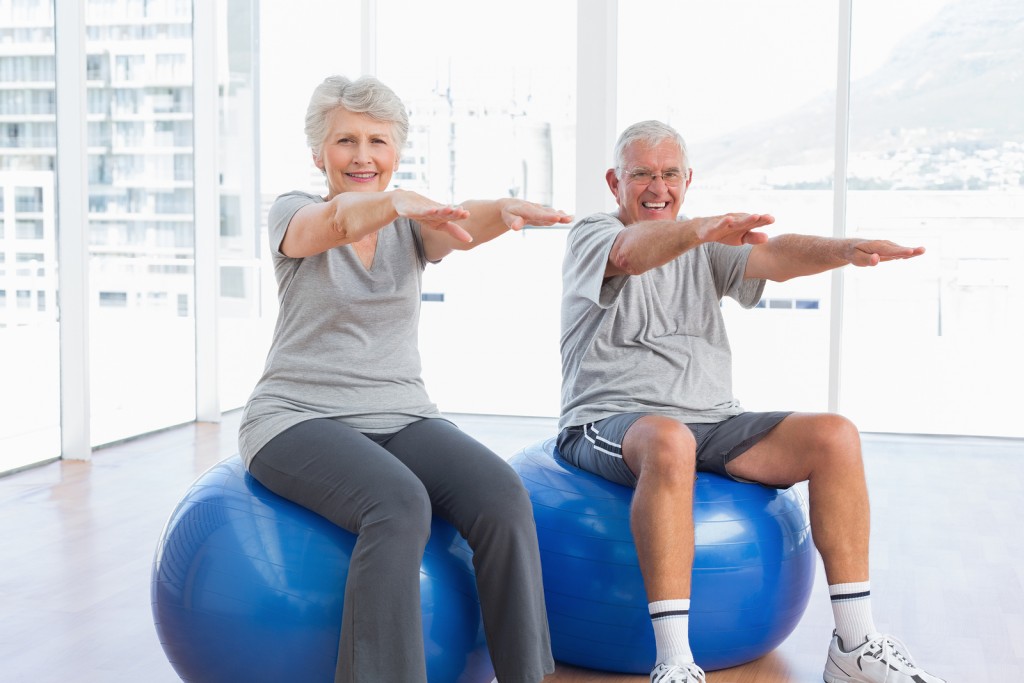 The National Institute of Health reports that over one-third of seniors fall every year. These falls can have a major impact on your life, limiting your activities or even making independent living more difficult. There are many things you can do to prevent falls. Moving furniture to provide clear walking lanes, installing new hand rails on the stairs, and putting in support bars in your bathroom are just a few of them. However, one of the best things you can do to prevent falls is exercise.
The National Institute of Health reports that over one-third of seniors fall every year. These falls can have a major impact on your life, limiting your activities or even making independent living more difficult. There are many things you can do to prevent falls. Moving furniture to provide clear walking lanes, installing new hand rails on the stairs, and putting in support bars in your bathroom are just a few of them. However, one of the best things you can do to prevent falls is exercise.
Exercise does not mean you have to go to a gym every day and lift weights, although resistance exercise is desirable. Exercise means that you commit to doing four different types of exercise to improve your overall quality of life. The four types are Endurance, Strength, Balance, and Flexibility. All four will help you to reduce your chance of falling, or if you should fall, reduce your chance of a major injury and reduce your recovery time.
Endurance exercises are things that increase your cardiovascular fitness. This includes swimming, walking, riding a bike or jogging. This helps because as your heart health improves it is able to more efficiently pump blood through your body. This helps to speed up healing and lessens recovery time from an injury.
Strength exercise is important in fall prevention because it enables you to stop yourself from falling in a direct manner by catching yourself as you fall. Strong muscles also can help prevent a broken bone. Simple strength training uses light weights or resistance bands to get your muscles to increase in strength or at least not to lose strength. For best results, this type of exercise is done two to three times per week. Simple strength exercises include modified pushups (pushups done on your knees instead of in the traditional position), situps, leg raises and wall squats (these squats are done with your back against a wall and are easier than traditional weighted squats).
Balance exercises help to strengthen the muscles in the body called stabilizers. These are the small muscles in your ankles and your knees as well as your hips and your core. As the name suggests, doing these exercises helps you to maintain your balance so you do not fall easily. Yoga and Tai Chi are excellent low impact exercises that can help you work on your balance. Basic balance exercises are standing on one foot, and side and back leg raises. These can be done with the assistance of a chair if you are feeling unsteady.
Flexibility exercises are excellent for fall prevention. Flexibility is the ability of your joints and muscles to move in greater arcs and movement ranges. This helps in fall prevention because it ties directly into helping you maintain your balance and maintaining strength. Yoga is one form of stretching exercise that also helps with your balance. In a pinch, doing eleven basic stretches for a minute per stretch is a good beginning. The eleven basic stretches are
- Neck and Shoulder stretch
- Shoulder and Upper Arm stretch
- Upper Body stretch
- Chest stretch
- Upper Back stretch
- Ankle stretch
- Hamstring stretch
- Thigh stretch
- Hip stretch
- Lower Back stretch
- Calf stretch.
Do each stretch three times for ten to twenty seconds per stretch, slowly moving into position and holding. Do not stretch so far that you feel pain. You might feel slight discomfort as your muscles and tendons acclimate themselves, however.
Exercising is a key way to not only prevent falls but also to improve your overall quality of life. These four areas of exercise should be incorporated into your everyday life. As with all exercise, you should consult with your doctor before beginning a new regime. For an excellent checklist about falls, click here.
But accidents do happen, and once they do, it is important that help reaches you quickly. In fact, if care is provided within the first hour of falling, there is an 80% chance you’ll experience a full recovery. This critical timeframe is known as the golden hour. Pioneer medical alert buttons are designed to you get you the help you need, when you need it. Call us today 1-800-824-8844 and we’ll explain how.